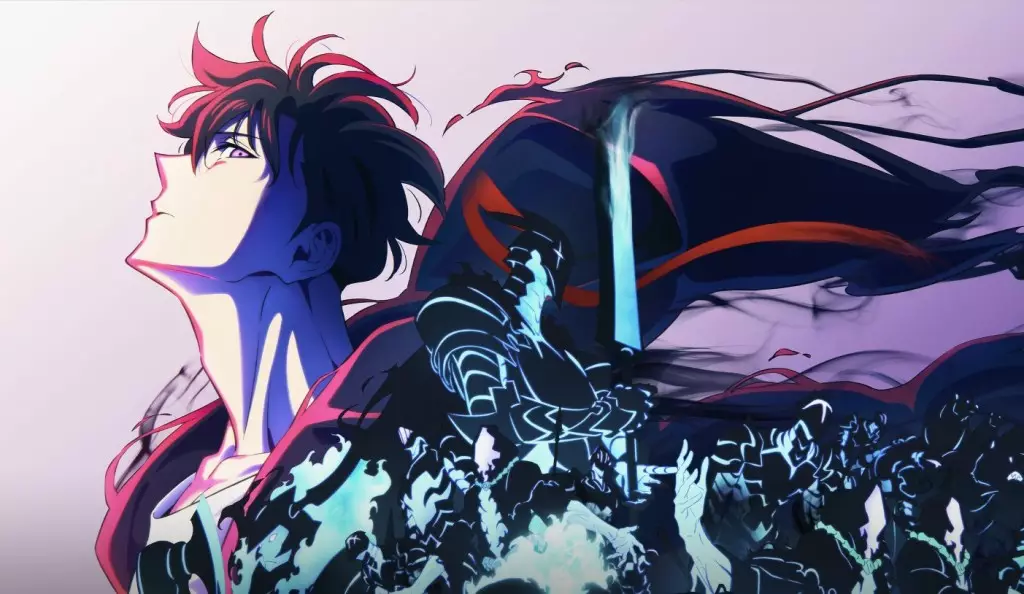In recent years, anime has transcended its niche status, captivating global audiences and emerging as a powerhouse in entertainment. At the heart of this transformation is Crunchyroll, a platform that not only caters to anime aficionados but also paves the way for the industry’s evolution. The platform’s recent discussions, particularly with its President Rahul Purini, spotlight an invigorating future for significant titles like *Solo Leveling*, along with ambitious projects such as *Ghost of Tsushima* and the next installment in the *Demon Slayer* franchise. This article delves into Purini’s insights and the broader implications for the anime industry.
*Solo Leveling*: A New Standard for Anime Adaptations
*Solo Leveling* has rapidly gained traction since its debut on Crunchyroll, quickly emerging as the platform’s flagship series. Purini credits the manhwa’s robust source material, which resonated deeply with fans before it even transitioned to the screen. The fusion of high-quality animation from A-1 Pictures and a gripping story aligns perfectly with the expectations of today’s audience, especially those intimately familiar with gaming culture.
The anime adapts elements from RPGs and first-person shooters, tapping into a linguistic and thematic connection that many viewers can relate to. This clever approach has established *Solo Leveling* not merely as an anime but as a relatable experience for gamers. The excitement surrounding Season 2, which claimed the title of Crunchyroll’s top series in the first quarter of 2025, exemplifies a growing trend where rich narratives that speak to gaming audiences ignite fervor within mainstream media.
With fans clamoring for a third season, Purini’s optimism about another installment is noteworthy. He recognizes that satisfying this demand can involve strategic timing and collaboration with the creators, ensuring that the quality remains paramount. His insight into this careful orchestration hints at a rapidly maturing industry seeking sustainable growth rather than ephemeral hits.
The Power of Collaboration: Expanding Genres and Formats
Crunchyroll’s ambition doesn’t stop with *Solo Leveling*. It extends to a project adaptation of *Ghost of Tsushima*, a video game that has resonated with a global audience. This endeavor reflects a significant trend: adapting beloved gaming stories into anime formats. Fans of the game are understandably eager to see their favorite characters and narratives come to life in a new medium, potentially broadening the audience even further.
The collaboration between Crunchyroll, Aniplex, Sony Music, and PlayStation Productions exemplifies how partnerships across industries can lead to innovative content creation. Drawing on established properties such as *Ghost of Tsushima* can yield robust viewership and potentially replicate the success of prior adaptations. It’s an audacious move and a testament to the belief that gaming narratives are ripe for exploration within the anime framework.
Demon Slayer: A Benchmark for Franchise Success
The *Demon Slayer* franchise stands as a beacon of success within the anime realm, with each release shattering box office expectations. However, it’s not enough to rest on past laurels. Purini’s insights reveal an acute awareness of the need for continued innovation in storytelling to satisfy an ever-demanding audience.
The upcoming release of *Infinity Castle* in U.S. theaters is poised to continue this trend of success. After the remarkable box office results for previous films, the pressure intensifies to meet or exceed those expectations. By leveraging the Sony family resources and their established narrative strengths, Crunchyroll seems well equipped to navigate the complexities of audience expectations in a fiercely competitive market.
The Future: A Convergence of Video Games and Anime
The crossroads of video games and anime represents a promising frontier that has yet to be fully explored. Purini’s mention of the thematic parallels between gaming and anime speaks to a deeper understanding of audience psychology. The distinct “language” of gaming, when translated into an anime format, has the potential to create something truly extraordinary and engaging.
Moving forward, we can anticipate not only more adaptative projects that reflect the rich narratives found within popular games but also a broader acceptance of storytelling techniques that resonate with both anime and gaming cultures. The challenge remains to maintain artistic integrity while appealing to commercial sensibilities, a balance that Crunchyroll appears eager to exploit.
In a world where narratives drive engagement, focusing on the convergence of gaming and anime is not just a trend; it’s the future of storytelling. As studios like Crunchyroll forge ahead with ambitious projects, the possibilities are limited only by creativity and vision.

